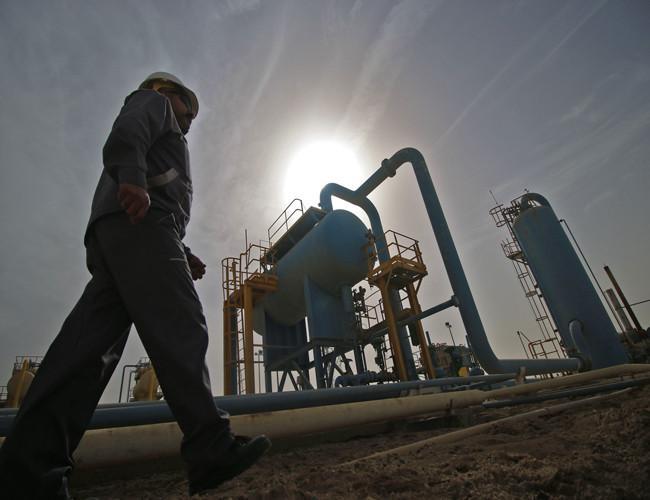Iraqi parliament approves budget, Kurdish lawmakers boycott vote
BAGHDAD – Reuters

Iraq’s parliament approved a long-delayed budget on March 3, the first since declaring victory over Islamic State of Iraq and the Levant ç(ISIL) after three years of war, but Kurdish lawmakers boycotted the vote over their region’s diminished allocation.
The budget of 104 trillion Iraqi dinars ($88 billion) is based on projected oil exports of 3.8 million barrels per day (bpd) at a price of $46, a copy of the final bill showed.
It envisions government revenues of 91.64 trillion dinars ($77.6 billion) with a deficit of 12.5 trillion dinars ($10.58 billion).
Parliament was meant to pass the budget before the start of the 2018 financial year in January but all three main blocs, Shi’ite Arabs, Sunni Arabs, and Kurds, had serious issues with the government’s proposal.
“We boycotted the vote and there are proposals for Kurdistan to withdraw from the entire political process in Iraq over the unfair treatment we have received,” said Kurdish MP Ashwaq Jaff.
The budget cut the semi-autonomous Kurdistan Regional Government’s (KRG) share from the 17 percent the region has traditionally received since the fall of Saddam Hussein.
It did not specify a percentage to be allocated to the KRG, instead stipulating it would receive funds proportional to its share of the population.
In a previous draft the KRG portion was set at 12.67 percent, which is how much of Iraq’s population Baghdad says the provinces in the KRG territories make up.
The KRG disputes that estimation.
The Kurds overwhelmingly voted to secede in an independence referendum in September, which was opposed by Baghdad.
In October, Iraqi forces retook disputed territories, including the oil city of Kirkuk, that had come under Kurdish control in 2014, and Baghdad imposed sanctions on the KRG, such as suspending international flights from Kurdish airports.
Baghdad and the KRG had been engaged in talks for months about the sanctions and Kurdistan’s share of the budget.
The government said on Feb. 27 it had reached an agreement with the Kurds to resume Kirkuk oil exports through Turkey’s Ceyhan port but gave no precise timeline.
The projected 3.8 million bpd exports in the budget includes a 250,000 bpd contribution from the Kurdistan region, lawmakers said on March 1.
Shi’ite lawmakers wanted more spending allocated to the southern oil-producing, predominantly Shi’ite, provinces as well as greater salaries and benefits for the Iran-backed Shi’ite militias known as Popular Mobilization Forces, who helped Iraq’s security forces defeat ISIL.
Sunni lawmakers wanted more allocated towards reconstructing areas retaken from the militants, which were predominantly Sunni. The areas include Iraq’s second city Mosul.
On March 1, the “three presidencies” of Iraq, its Shi’ite prime minister, Sunni parliament speaker, and Kurdish president, had met to discuss how to push the budget through.
Prime Minister Haider al-Abadi congratulated Iraqis over the passing of the budget on Saturday and said it was the result of cooperation between the executive and legislative branches.
Speaker Salim al-Jabouri said the budget addressed Kurdish concerns and that the federal government would pay the salaries of Kurdish civil servants and Peshmerga fighters, as well as welfare entitlements.
Baghdad had stopped paying salaries or making budget transfers to the Kurdish regional capital Erbil in 2014 when the Kurds started independently selling oil.
Oil exports, Iraq’s main source of revenue, have risen above 3.4 million barrels per day this year but a global slump in prices for crude, compounded by the costs of rebuilding an infrastructure damaged by the war against Islamic State, have battered the country’s finances.
















